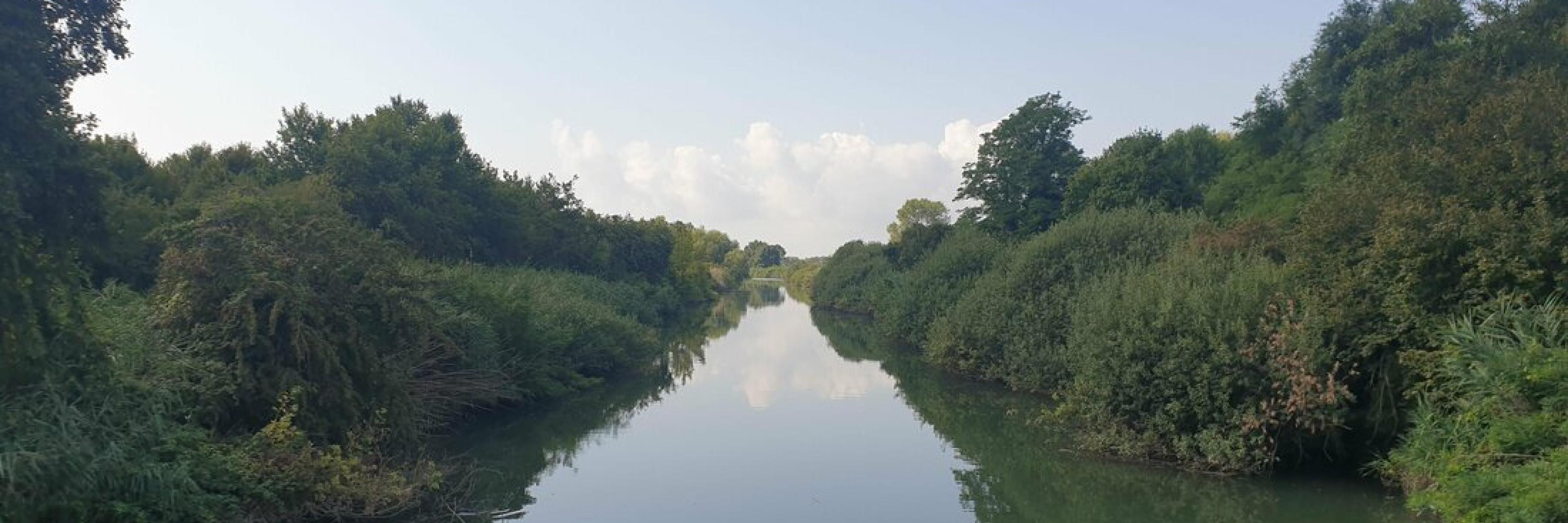
Inland Waterscapes: Nature, Society and Culture in Hydrography
The International Conference on Inland Waterscapes (Udine,Italy – 22-25 May 2024) is collaboratively organized by The University of Udine (Italy), Ca’ Foscari University of Venice (Italy), the River Cities Network (Netherlands) and Shima (Australia).
Its aim is to internationalise the emergent field of Waterways Studies and to give researchers from different regions the opportunity to understand the nature of waterways as cultural water-/landscapes in differing locations across the world.
For more detailed information go to: https://inlandwaterscapes.uniud.it/
Read the press coverage in MessaggeroVeneto: The world is an aquapelago. International conference arrives in Friuli.
This conference aims to discuss the crucial importance of inland waterscapes as visible and intangible infrastructural networks within various national, regional and local contexts. We will tackle these questions from multidisciplinary perspectives and imagine new functions, roles and positions of and for water. Historic waterways contain elements such as bridges, lock systems, hydraulic factories, warehouses, and river port facilities that are increasingly recognised as industrial heritage assets. It is also important to consider the socio-cultural value of rivers, canals, lakes, lagoons, estuaries and other bodies of water. Inland waters, including city watersides, play pivotal roles in our everyday practices, experiences, biographies, and memories. The intangible heritages of inland waters (re)created by a continual interplay between various individual and collective memories and histories result in hybrid watery spaces and places. Therefore, we need to pay attention to both the politics and grand narratives about waterscapes as well as personal memories, reflections, local traditions and vernacular practices.
The conference aims to highlight the crucial importance of inland waters that are simultaneously linear and networked watery places. Waterscapes are socio-natural hybrids, results of environmental processes and a variety of human and non-human agencies and, as such, they merit our attention. We suggest understanding hybridity in terms of cultural ecosystems, socio-cultural adaptability and becoming. With this conference we would like to encourage scholars to move beyond the strictly figurative use of liquidity, while retaining its central notions of uncertainty, flux and constant motion.
A more sophisticated dialogue with inland waterscapes should be better grounded on the consciousness that we are dealing with the increasing alteration of the natural dynamics normally associated with the hydrological cycle. Year after year, most of the rivers in our planet are sending us specific seasonal signals either about the reduction of flows and sediments to nourish floodplains and coastal regions or the increasing flow of glacial melt-waters than can cause floods downstream. Furthermore, many inland waterscapes are running dry for increasingly longer periods, causing changes in our watery senses of place.
This conference will therefore track the transformations of inland waterscapes and discuss them not only as meaningful sites for transport, dwelling, work, (urban) regeneration, tourism, and leisure, but also as a repository of personal stories, increasingly being affected by the perception that major transitions are underway. In order to understand them better, we propose a flat ontology of watery materialities, infrastructures, policies, narratives and everyday experiences. The aim is to bring together not only academics but also other stakeholders such as policymakers, volunteers and practitioners who deal with water in order to encourage fruitful dialogue.
Keynote speakers
Prof. Veronica Strang (Oxford University’s School of Anthropology and Museum Ethnography)
Prof. Francesco Vallerani (University of Venice Ca’ Foscari).
Dr Ana De Francesco (FGV Center for Human Rights and Corporations)